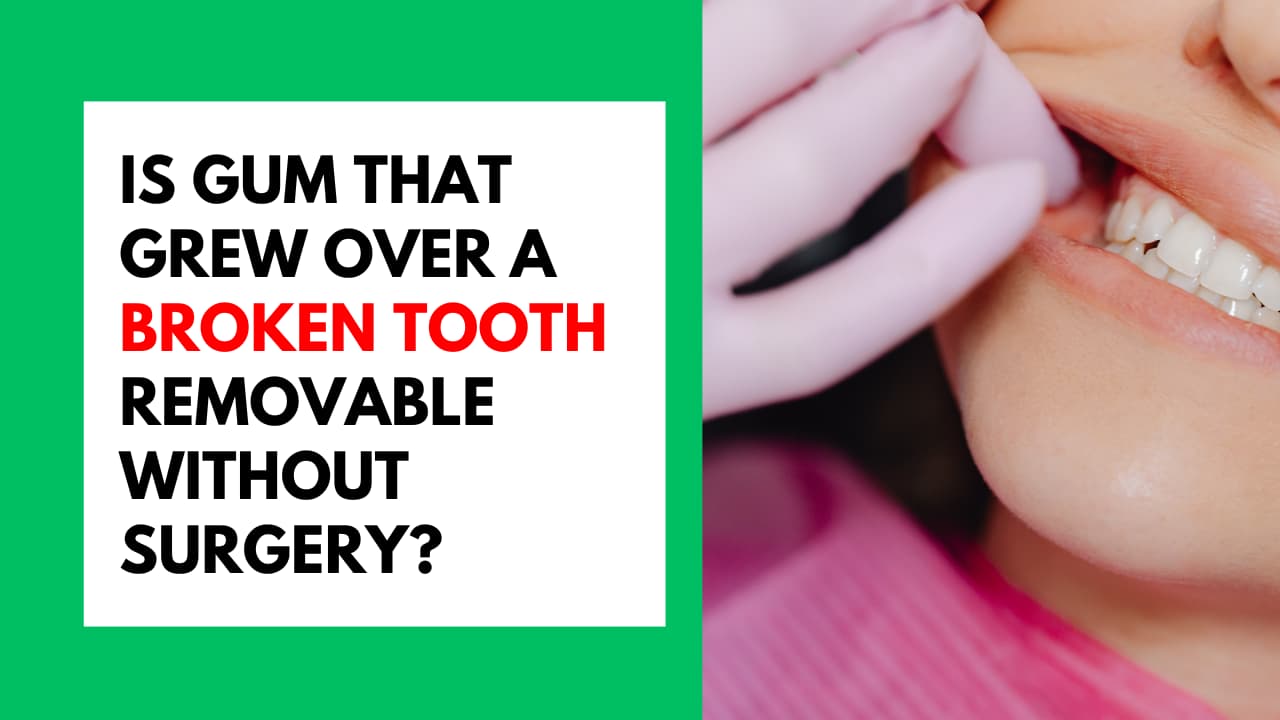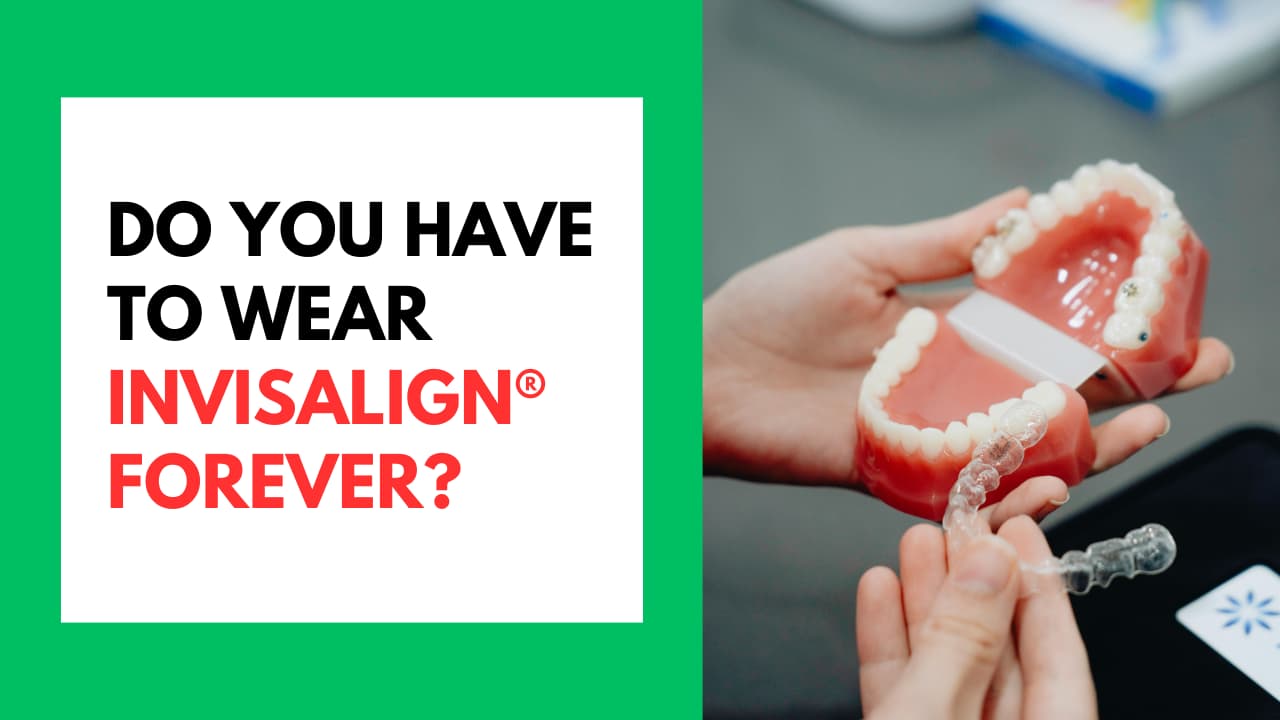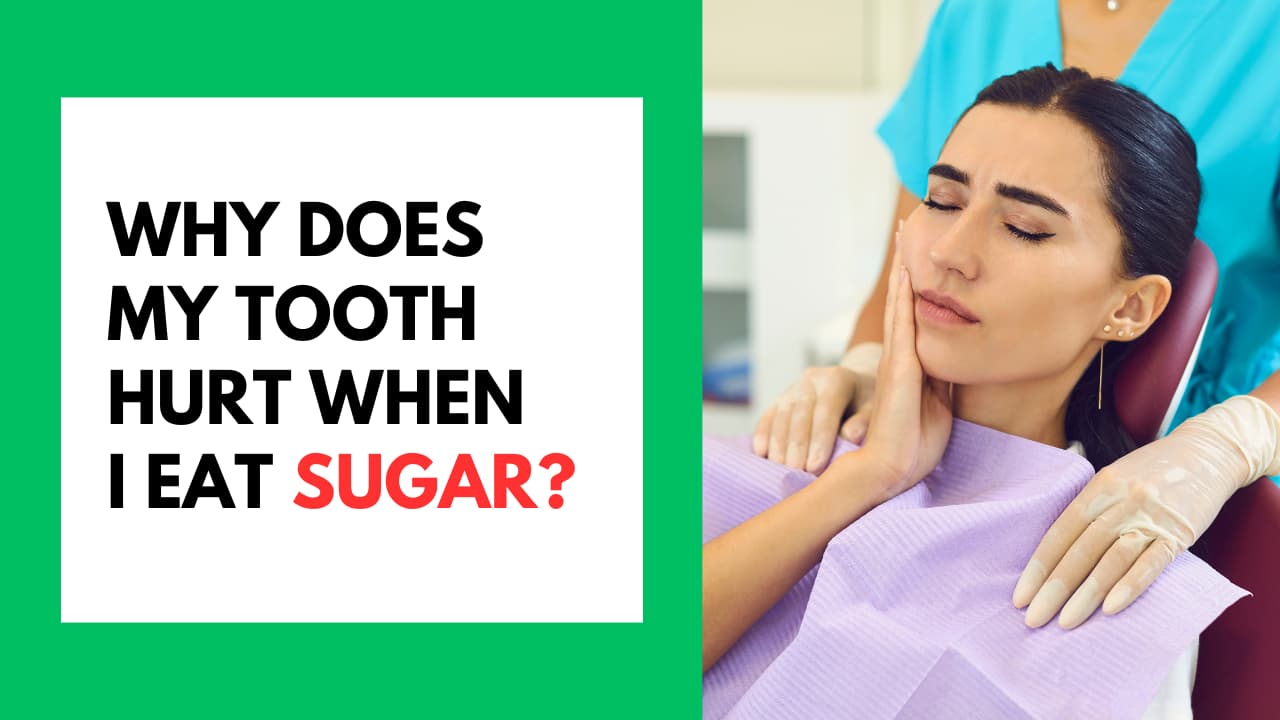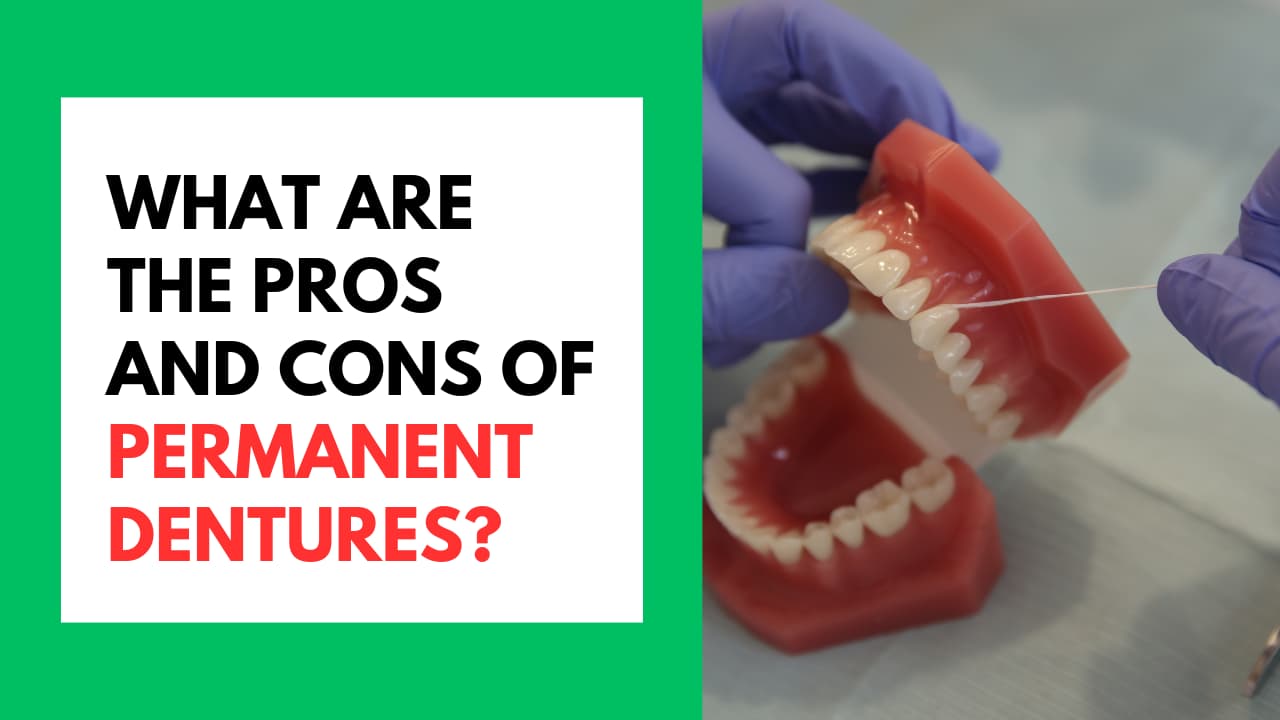When a tooth breaks, it’s not just the hard parts like enamel and dentin that are affected; sometimes the gum around the tooth reacts in a surprising way by growing over the broken area, almost like a natural cover. Seeing this extra gum tissue can make you wonder if it’s something that can go away on its own or be removed without surgery. Having gum growing over a broken tooth can feel strange or even worrying, making you question what’s really going on under the surface and whether it can be treated easily or if it’s a sign of something more serious. Let’s find out why it happens and whether it’s treatable without surgery.
Expert in This Article
Dr. Venkat Koppuravuri, also known as Dr. K, is a New York University graduate with a degree in dentistry.
What Is Gum Tissue Overgrowth?
Gum tissue overgrowth, also called gingival hyperplasia or gingival enlargement, happens when the gums around the teeth grow too much. The gums become thick, puffy, and may start to cover part or all of the teeth, making them look smaller or completely hidden. Causes of gum overgrowth include:
- Poor oral hygiene
- Certain medications
- Hormonal changes
- Genetics
- Health conditions
- Braces or dental appliances
Connection Between a Broken Tooth and Gum Overgrowth
When a tooth breaks, it exposes the inner layers, like the dentin and pulp, which are usually protected by enamel. According to Dr. Venkat Koppuravuri of Shopton Dental, “The open area caused by a broken tooth becomes an easy entry point for bacteria, which can infect the soft tissue inside the tooth and the nearby gums.”
Broken teeth often have sharp or uneven edges that are hard to clean properly. This allows food particles and plaque to build up around the broken area and gum line, giving bacteria a place to grow. As bacteria collect around the broken tooth, the immune system reacts by causing inflammation. This leads to swelling of the gums and sometimes gum overgrowth, as the body tries to protect and heal the area.
If brushing and flossing are not done well, the buildup of plaque and bacteria increases. This makes the inflammation and gum swelling worse and raises the risk of infection. If not treated, the ongoing inflammation and bacterial infection can turn into gum disease (periodontal disease). This can damage the gums and the bone that supports the teeth, leading to bleeding, bad breath, and even tooth loss.
Treating a Gum Overgrowth Over a Broken Tooth
In some cases, gum growing over a broken tooth can be treated without surgery. However, this depends on how serious the overgrowth is and what’s causing it.
· Non-Surgical Treatments for Mild Cases
If the gum overgrowth is mild and mainly caused by inflammation due to plaque buildup, non-surgical options may help. Good brushing and flossing, along with professional dental cleanings like scaling and root planing (deep cleaning), can reduce swelling. These cleanings remove bacteria, plaque, and tartar from under the gums, which helps the gums heal and shrink back to normal. Other non-surgical options include:
- Antibiotics to treat the infection, either applied directly to the area or taken as pills
- Laser therapy, which gently removes swollen gum tissue and bacteria with less pain and faster healing than traditional methods
· When Non-Surgical Treatments Aren’t Enough
If the gum tissue becomes thick, firm, or fibrous, or it covers a large part of the tooth and makes it hard to chew or clean, non-surgical treatments usually won’t work. That’s because this type of tissue overgrowth isn’t just swelling, it’s an actual buildup of extra gum tissue that won’t go away with cleaning or medication alone. Surgery may be needed if:
- The overgrown gum doesn’t go away, even with good oral care
- It causes pain, looks unnatural, or affects how your smile appears
- It makes brushing and flossing difficult, increasing the risk of further gum problems
· When Surgery Is the Right Option
If the gum overgrowth is serious or doesn’t improve, a dentist or periodontist may recommend surgery to remove the extra tissue and restore the gums to a healthy shape. Surgical options include:
- Gingivectomy
- Laser gum surgery
- Periodontal flap surgery
Surgery helps make the gums easier to clean and reduces the risk of future problems like advanced gum disease. It also improves the look and function of the tooth and the surrounding gums. Explains Dr. Venkat Koppuravuri.
Risks of Leaving Gum Overgrowth Untreated
Leaving gum overgrowth untreated can lead to serious problems for both your mouth and overall health. The following are some major risks:
· Gum Disease and Periodontitis May Develop
Gum overgrowth often starts because of long-term swelling and infection caused by bacteria. If it isn’t treated, this can turn into periodontal disease, a more serious condition that damages your gums and the bone that holds your teeth in place. Over time, this can lead to gums pulling away from the teeth, bone loss, and eventually tooth loss.
· Harder to Keep Clean and More Bacteria Build-Up
Too much gum tissue creates small pockets and spaces around the teeth that are difficult to brush and floss properly. This allows plaque and tartar to build up, which holds harmful bacteria. As a result, people may experience bad breath, ongoing infections, and more gum swelling. Poor cleaning around overgrown gums also speeds up gum disease and can even lead to teeth moving out of place due to shifting.
· Weakened Teeth and Oral Problems
The constant swelling and infection from untreated gum overgrowth can weaken the gums and bone that support the teeth. This makes teeth loose and increases the risk that they will eventually fall out. “As the condition gets worse, it can affect how you chew, speak, and use your mouth, lowering your quality of life.” Says Dr. Koppuravuri.
· Effects on Overall Health
Serious gum disease caused by untreated overgrowth doesn’t just affect your mouth. It’s been linked to other health problems such as heart disease, worsened diabetes, lung infections, and pregnancy issues like low birth weight. Keeping your gums healthy is important not just for your teeth but for your whole body.
Wrapping Up
If you notice gum tissue that has grown over a broken tooth, you should see a dentist. Catching the issue early can help prevent serious problems like gum disease or losing a tooth. Dentists and gum specialists (periodontists) are trained to handle gum overgrowth and broken teeth. They can offer both non-surgical and surgical treatments, depending on how severe the condition is. Dr. Venkat Koppuravuri further states that “Taking care of gum overgrowth early is important, as mild cases are easily treated without any surgical approaches.”






